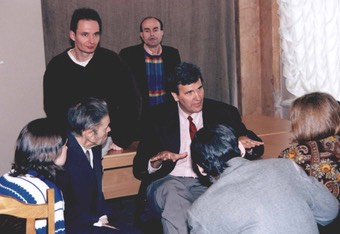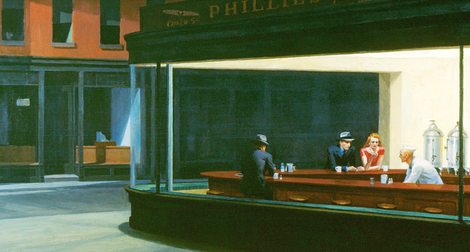Resources
Night Hawks (Edward Hopper)
Art Institute of Chicago, Photo Credit: JAC
Informal logic is obviously related to formal logic, the former being more interested in logical problems that are stated (not surprisingly) informally--typically in popular discourse, like political and religious dialogue and the like of that. Historically informal logic has stressed the importance of a careful reading of the text and distilling from it a more formalized version of the argument, which can then be addressed more explicitly. Historically it has also emphasized the importance of identifying any logical fallacies to which the argument may fall prey.
Since many apologetic conversations are informal in nature, the ability to apply the lessons learned in studying and mastering the intricacies of informal logic can pay great dividends in terms in terms of promoting conversational clarity and meaningful dialogue. The skills learned play a critical role in persuasive dialogue, and typically plays a negative deconstructive role in apologetics. That is, it is often used to find out and articulate what’s wrong with the other side’s arguments.

Of course, even though these skills may make you the center of attention at the next department party, learning when and how to use those skills are extremely important lest you win the argument but lose your audience. It’s simply bad form to win arguments for show without a care for those with whom you dialogue--we are, after all, seeking to know and understand the truth and only helping and persuading folks, where it is in their interest and will to do so.
